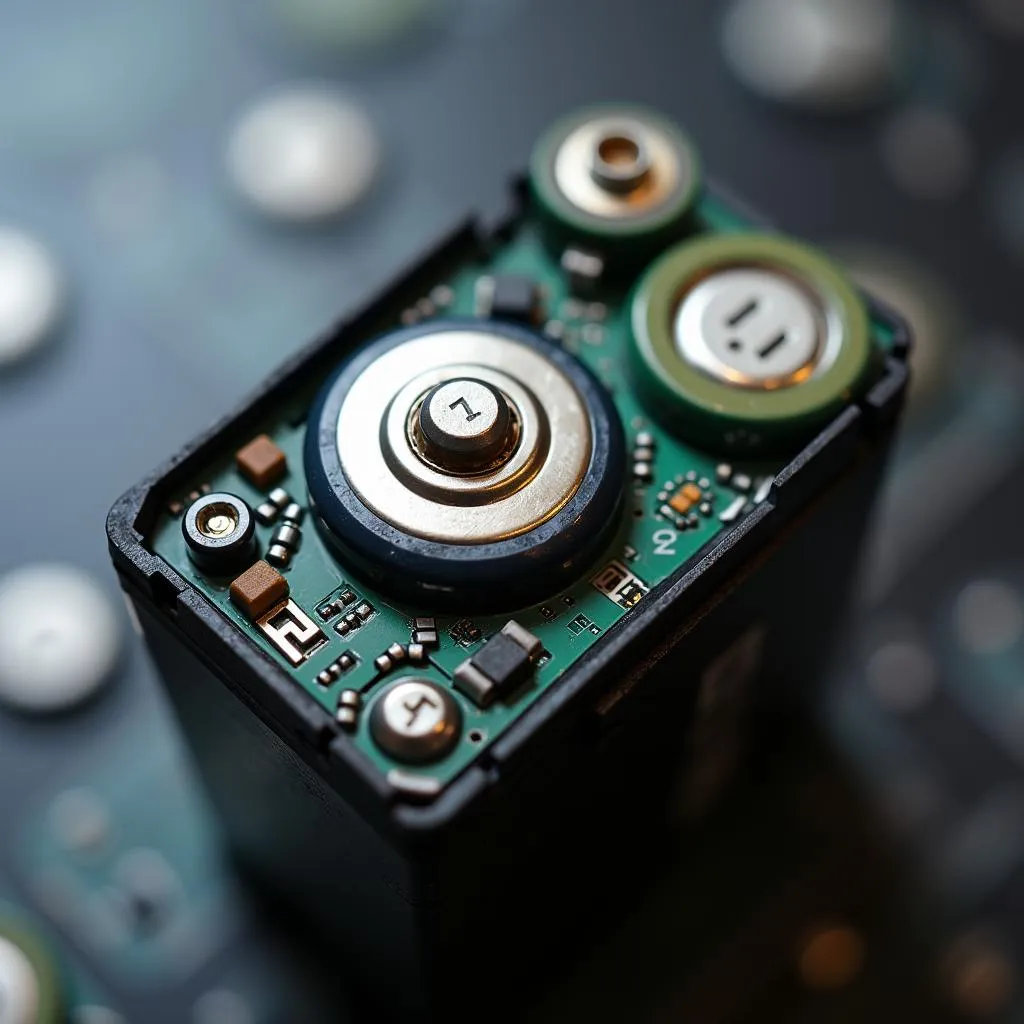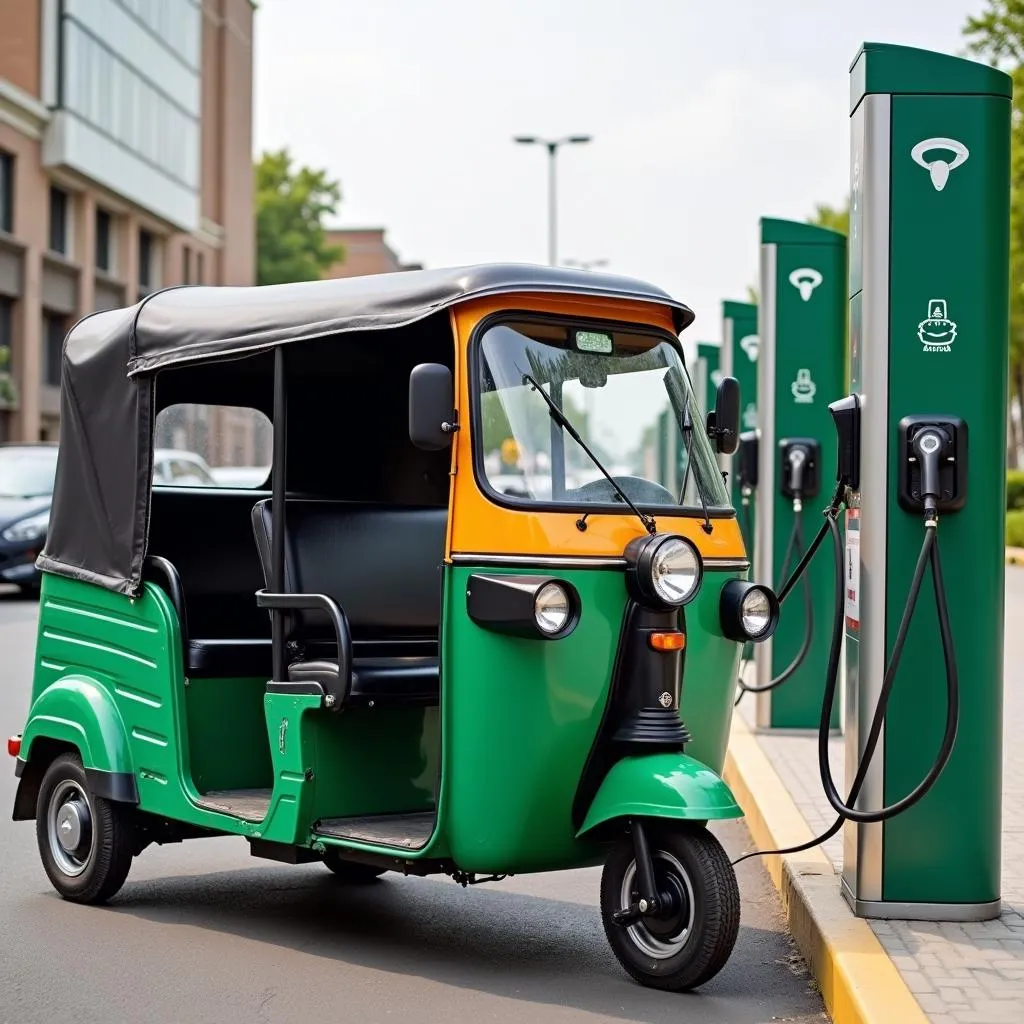Lithium batteries are rapidly becoming a crucial part of Pakistan’s energy landscape. From powering our smartphones to driving electric vehicles, these energy storage solutions offer high performance and efficiency. This comprehensive guide dives deep into the world of lithium batteries in Pakistan, exploring their applications, benefits, and potential impact on the nation’s future.
 Lithium-ion battery technology
Lithium-ion battery technology
Understanding Lithium Battery Technology
Lithium batteries are a type of rechargeable battery that utilizes lithium ions moving between the anode and cathode to create an electrical current. This movement of ions distinguishes them from traditional lead-acid batteries, offering several advantages:
- High Energy Density: Lithium batteries store significantly more energy for their size and weight compared to other battery types. This characteristic makes them ideal for portable electronics and electric vehicles where space and weight are critical factors.
- Longer Lifespan: Lithium batteries have a longer lifespan, undergoing more charge and discharge cycles before their performance degrades.
- Low Self-Discharge Rate: Compared to other rechargeable batteries, lithium batteries lose their charge at a much slower rate when not in use.
- Lightweight and Compact: Their lightweight and compact nature further enhances their appeal in applications where portability is paramount.
Applications of Lithium Batteries in Pakistan
The applications of lithium batteries in Pakistan are diverse and rapidly expanding:
- Consumer Electronics: Lithium batteries power our smartphones, laptops, tablets, and other portable devices. The demand for these devices continues to rise in Pakistan, fueling the need for reliable and efficient lithium batteries.
- Electric Vehicles (EVs): As Pakistan explores sustainable transportation solutions, the adoption of electric vehicles is gaining momentum. Lithium batteries serve as the primary energy source for EVs, enabling them to cover significant distances on a single charge.
- Renewable Energy Storage: Pakistan is increasingly investing in renewable energy sources like solar and wind power. Lithium batteries play a vital role in storing excess energy generated from these intermittent sources, ensuring a stable and reliable power supply.
- UPS Backup Systems: Power outages are a common occurrence in Pakistan. Lithium battery-based UPS systems offer a reliable backup power solution for homes and businesses, ensuring uninterrupted operations during blackouts.
Advantages of Lithium Batteries for Pakistan
The adoption of lithium batteries in Pakistan offers numerous benefits:
- Reduced Reliance on Fossil Fuels: By powering EVs and storing renewable energy, lithium batteries can significantly reduce Pakistan’s dependence on fossil fuels, contributing to a cleaner and more sustainable energy mix.
- Economic Growth: The growing lithium battery industry presents numerous economic opportunities for Pakistan, from manufacturing and assembly to research and development.
- Improved Air Quality: The transition to electric vehicles powered by lithium batteries can significantly reduce air pollution in urban areas, improving public health and living standards.
- Enhanced Energy Security: By diversifying energy storage solutions and promoting renewable energy, Pakistan can enhance its energy security and reduce its vulnerability to global energy market fluctuations.
Challenges and Opportunities
While the future of lithium batteries in Pakistan appears promising, challenges remain:
- Cost: Lithium batteries can be expensive, especially for large-scale applications like electric vehicles and grid storage.
- Infrastructure: The widespread adoption of electric vehicles requires a robust charging infrastructure, which is currently underdeveloped in Pakistan.
- Recycling: Developing efficient and environmentally friendly recycling processes for lithium batteries is crucial to ensure their sustainability.
However, these challenges also present opportunities:
- Investment in Research and Development: Investing in research and development can lead to technological advancements that reduce the cost and improve the performance of lithium batteries.
- Public-Private Partnerships: Collaborations between the government and private sector can accelerate the development of charging infrastructure and promote the adoption of electric vehicles.
- Skill Development: Training a skilled workforce in lithium battery technology, manufacturing, and recycling will be crucial to support the industry’s growth.
 Electric rickshaw plugged into a charging station
Electric rickshaw plugged into a charging station
Lithium Battery Price Trends in Pakistan
The price of lithium batteries has been steadily declining in recent years, driven by technological advancements and economies of scale. This trend is making them more accessible for various applications in Pakistan:
- Rickshaw battery price in Pakistan: The increasing affordability of lithium batteries is making electric rickshaws a viable alternative to traditional gasoline-powered ones.
- Lithium ion solar battery price in pakistan: As more households and businesses adopt solar energy solutions, the demand for lithium-ion solar batteries for energy storage is rising.
- 48 volt battery price in pakistan: 48-volt lithium battery systems are finding applications in various sectors, including telecommunications and backup power solutions.
The Future of Lithium Batteries in Pakistan
Lithium batteries have the potential to revolutionize various sectors in Pakistan. As the technology continues to evolve and become more affordable, we can expect to see:
- Widespread Adoption of Electric Vehicles: Electric cars, buses, and motorbikes will become more commonplace, reducing air pollution and dependence on fossil fuels.
- Growth of Renewable Energy: Lithium batteries will be crucial in enabling the large-scale integration of solar and wind power into the national grid.
- Emergence of New Industries: The lithium battery industry will create new job opportunities and contribute significantly to the Pakistani economy.
Conclusion
Lithium batteries are poised to play a transformative role in Pakistan’s energy future. By embracing this technology and addressing the associated challenges, Pakistan can pave the way for a more sustainable, prosperous, and energy-secure future. The journey towards a lithium-powered future has begun, promising a cleaner and brighter future for generations to come.
FAQs about Lithium Batteries in Pakistan
1. Are lithium batteries safe to use in Pakistan’s climate?
Yes, lithium batteries are designed to operate safely within a wide range of temperatures, including Pakistan’s climate.
2. How long do lithium batteries last?
Lithium batteries have a longer lifespan compared to other battery types, typically lasting several years depending on usage patterns.
3. Where can I buy lithium batteries in Pakistan?
Lithium batteries are increasingly available through various suppliers, electronics stores, and online retailers in Pakistan.
4. Can I recycle lithium batteries in Pakistan?
While recycling infrastructure for lithium batteries is still developing in Pakistan, it is crucial to dispose of them responsibly through authorized collection points.
5. What is the government doing to promote lithium battery technology in Pakistan?
The Pakistani government is introducing policies and incentives to encourage the adoption of electric vehicles, renewable energy, and local manufacturing of lithium batteries.
Do you have any other questions?
We are here to help!
Contact us:
Phone: +923337849799
Email: [email protected]
Address: Dera Ghazi Khan Rd, Rakhni, Barkhan, Balochistan, Pakistan.
Our customer service team is available 24/7 to assist you.
Explore our other articles:
We are committed to providing you with valuable information about the latest technological advancements in Pakistan.